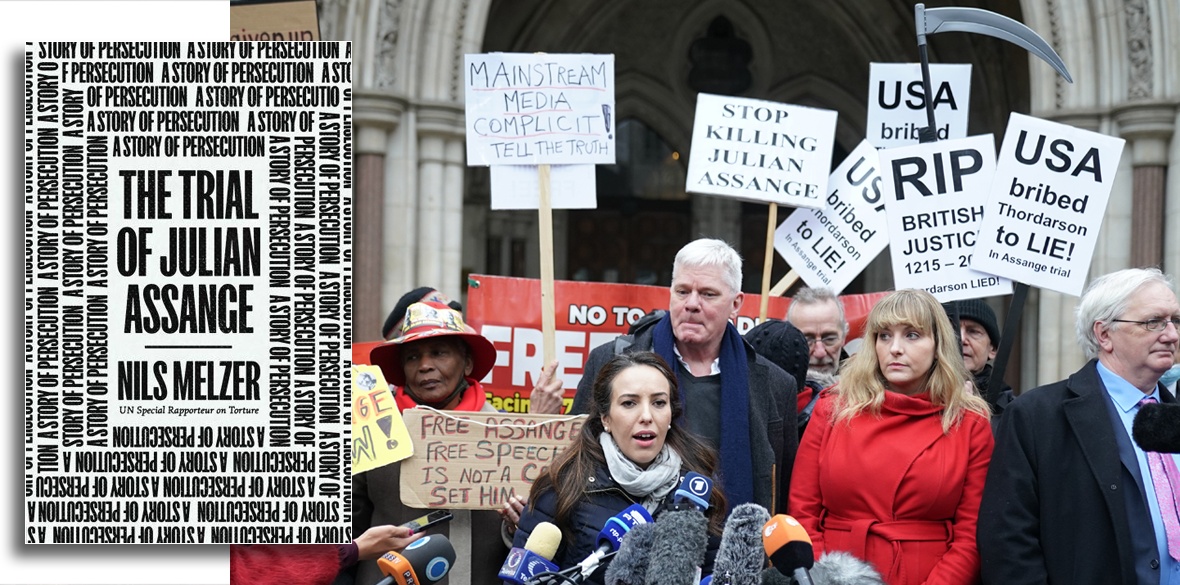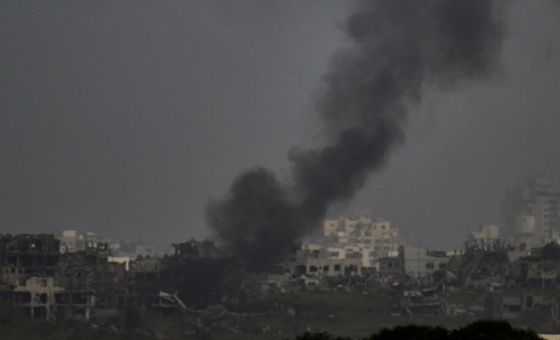This is the last article you can read this month
You can read more article this month
You can read more articles this month
Sorry your limit is up for this month
Reset on:
Please help support the Morning Star by subscribing here
The Trial of Julian Assange. A Story of Persecution London
by Nils Melzer
Verso £20
THIS is a remarkable book by a remarkable man, who has travelled a remarkable personal journey. While the book’s title is The Trial of Julian Assange, a key element tracks how Nils Melzer, the UN Special Rapporteur on Torture, was himself tested: he was not found wanting.
In December 2018 Assange’s legal team asked Melzer to investigate the conditions under which Assange was held in the Ecuadorean embassy. Melzer dismissed the email because he “was overtaken by a host of disparaging thoughts and almost reflexive feelings of rejection. Assange? No, I certainly would not be manipulated by this guy.”
The first part of the book charts a Damascene conversion from March 2019 when the legal team approached him again and more urgently, to May the same year when, after being grudgingly allowed to examine Assange in Belmarsh and after extensive research, he made his report. In letters to the four concerned governments – the US, Britain, Sweden and Australia – he was “harsh and uncompromising.”
He condemned their collective activities which had subjected Assange to “progressively severe pain and suffering, inflicted through various forms and degrees of cruel, inhuman or degrading treatment or punishment, the cumulative effects of which clearly amount to psychological torture.”
Melzer had “crossed the Rubicon” and had broken through the “prejudice…which had clouded my judgement” that Assange was a wrong ‘un. In the book Melzer, an experienced and prestigious international lawyer, destroys the various narratives surrounding Assange, whether as “rape suspect,” “fugitive from justice” or “hacker.” His reports and comments have been dismissed as absurd and trivial by British politicians and journalists – a disrespect shown to other UN rapporteurs also.
Melzer unpicks the key aspects of Assange’s case, the scene switching from Sweden, to the Ecuadorean embassy in London, to Belmarsh, to British court rooms, and over to the US White House and top security prisons. He argues, in fascinating and sometimes dramatic detail, that law and legal procedures have been systematically flouted to get Assange.
For instance Assange violated bail conditions when he sought asylum in the Ecuadorean embassy to avoid extradition to Sweden. Even though the extradition request was withdrawn, Judge Arbuthnot ruled in February 2018 that the arrest warrant for bail violation was still valid. Yet Arbuthnot had links with security firms and the British military, a conflict of interest in judging Assange.
On April 6 the defence team filed an application which would challenge the legitimacy of Arbuthnot to make such a ruling. Melzer speculates that that filing and his own request to visit Assange made a few days earlier prompted the unseemly haste with which Assange’s removal from the embassy was conducted. On April 11 Assange was hauled out and arrested – while the warrant was in place and before some meddling UN official could muddy the waters.
At every point Melzer demonstrates British, US and Swedish collusion and that “plots” were hatched and “scripts” played out in a strategy to tie Assange down in legal cases. The whole process of “torture by attrition” or “punishment by process” is the US response to Wikileaks’ 2010 publications of documents revealing US war crimes in Afghanistan and Iraq.
While Melzer emphasises the systemic failings in the justice system, he refuses to find malicious conspiracy but turns inwards to “wired” human weaknesses for the cause of the “secrecy, impunity and arbitrariness which are poisoning our democratic institutions”: the solution seems to lie in men’s souls.
Melzer might have looked outwards to the underlying reasons for today’s endless wars. It is monopoly capitalism, or imperialism, that drives the endless wars of our epoch and that distorts us as human beings. The solution to that is across a more dangerous river than the Rubicon.
Melzer is a man of courage and integrity. The research, knowledge and considered thought Melzer has given to Assange’s case is powerful and unanswerable. Assange has again been nominated for the Nobel Peace Prize and Melzer’s book must be on the judges’ reading list if they wish to make an honest decision.









